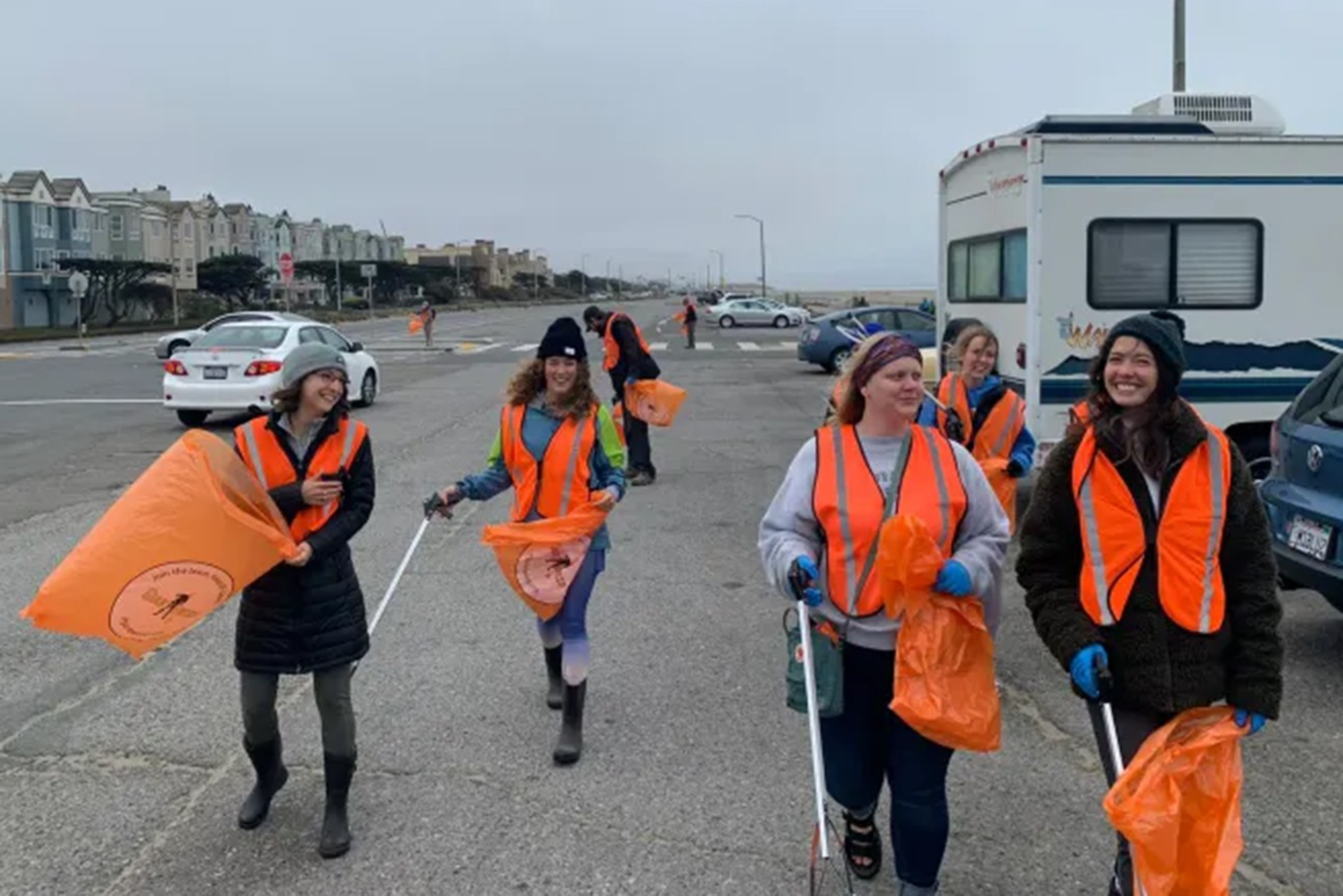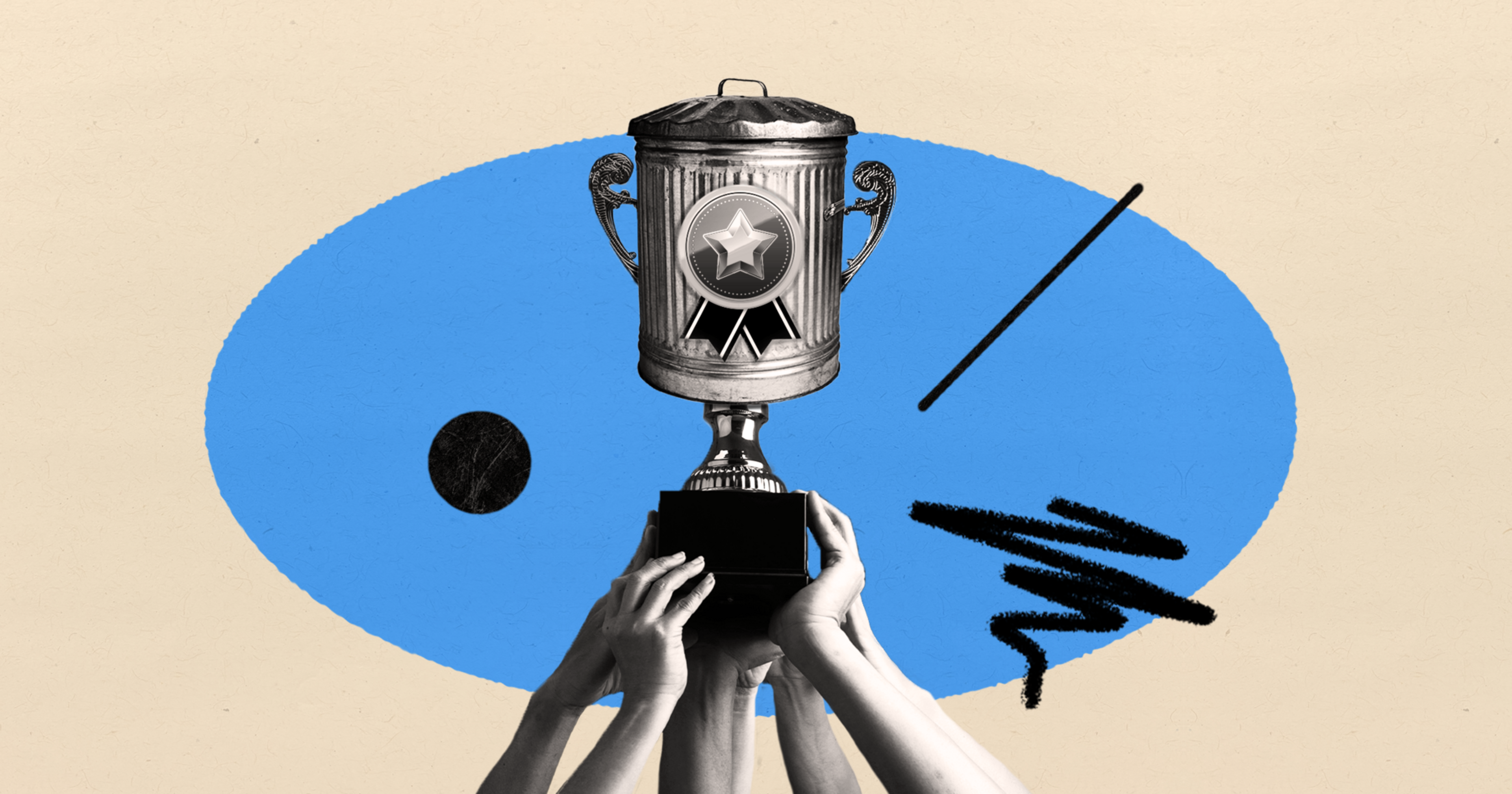Vince Yuen is the founder of Refuse Refuse San Francisco, a campaign that organizes neighborhood cleanups and educates fellow residents on how to keep the city clean. He lives in the Inner Richmond with his wife and two young kids.
Walk around just about any neighborhood, and you’re sure to come across an overflowing trash can, discarded furniture, poop (canine and human), food wrappers, takeout containers, masks and cigarette butts scattered about. Perhaps you’ve become numb to the litter that surrounds us as it fades into the urban landscape. Either way, you’ve probably come to your own conclusion on who is to blame for the seemingly ubiquitous detritus.
Everyone has an explanation: It’s the homeless. The city doesn’t clean. Merchants don’t clean. My neighbors don’t clean. We don’t have enough trash cans. People litter and dump things. I live in a wind tunnel. All of these reasons for the sad state of our environment are partially correct—and in the aggregate, they leave us dispirited about the Sisyphean task of keeping San Francisco’s streets clean.
My own journey from apathetic resident to trash warrior was born out of the frustrations of the pandemic. Stuck at home with two daughters, ages 4 and 6 at the time, and exhausting many of the outdoor, socially-distanced activities available, I bought a couple of trash pickers, and we started cleaning our block.
And amazingly, it worked! Our block in the Inner Richmond grew noticeably cleaner, and over time, it took us less effort to clean than when we first began. That allowed us to get out further into the neighborhood. One day, a neighbor asked if he could join us. We exchanged numbers, and the following week we were cleaning side by side.
This got me thinking, “Could we keep the city clean if we had enough people in each neighborhood who cared enough to go out and clean their block?” Having a sales and marketing background, I quickly realized we needed a branded campaign to serve as a banner we could rally behind that represents our collective effort to keep SF clean, and thus Refuse Refuse (opens in new tab) was born.

I also discovered that our Public Works Department has a volunteer program (opens in new tab) that supports neighborhood cleanups with cleaning supplies and trash bag pickup. I made a post on Nextdoor about a cleanup I was organizing, and it blew up. I soon found other people and groups that have been cleaning in SF for years and met others who wanted to start their own community cleanups. So I went about coordinating all these disparate parties into a singularly focused campaign.
I’ve lived in San Francisco since 2003, and like many have suffered from urban anonymity (opens in new tab), where you don’t even know the people that live in your own building. But at cleanups, I’ve seen college students exchange emails with retirees and tech bros chatting with hippies. Our campaign remains grassroots and all-inclusive as there’s no centralized structure, just people helping each other take actions to keep our neighborhoods clean, healthy and safe.
And very few volunteer activities are as tangible as cleaning. You have a dirty street, you pick up the trash, and now you have a clean street. The barriers to entry are very low, and I view cleanups as “gateway civic engagement.” There is no prior experience necessary and no need to commit to a specific schedule, just join any one of our many organized cleanups (opens in new tab) that fits your availability or just go out and clean your own block.
Ideally, our tax dollars would efficiently and effectively fund a clean city maintained by our city government. San Francisco’s Department of Public Works spends far more than other U.S. cities (opens in new tab), partly because it provides five major cleaning services—motorized sweeping, manual cleaning, response to service requests, illegal dumping removal and homeless encampment cleanup—multiple times per week.
Even after very effective public service campaigns like the Crying Indian (opens in new tab) and Give A Hoot Don’t Pollute (opens in new tab) helped bring littering rates down from 50% to 15% (opens in new tab), that’s still a lot of active litterers in a city of roughly 800,000 residents, with many more that work in or visit San Francisco. Cigarettes, seemingly infinite, consistently make up more than one-third of all litter by count. (For every 100 pieces Refuse Refuse picks up, 35 are cigarette butts.) Not surprisingly, about 65% of smokers (opens in new tab) don’t consider flicking their butt as littering. However, if we can change the habits of even a small percentage of routine smokers, that’s tens of thousands of butts over a lifetime.
We also discover a lot of single-use to-go food and beverage containers, likely a result of increased takeout orders. This includes a lot of disposable coffee cups from the likes of Starbucks, Peet’s, Philz, Ritual, Beanery and Equator. Those merchants care about clean streets, though, and to be fair, all of them have sponsored our cleanups.

It might not be feasible to institute the Disney rule (opens in new tab) of having trash cans every 30 feet, but clearly more is better than less (counter to what former Mayor Gavin Newsom postulated (opens in new tab)). All that said, trash cans still have to be emptied out in a timely manner, and they most definitely do attract dumped items, particularly from people who think they’re doing the right thing by piling household waste beside a sidewalk receptacle.
The wind shoulders considerable responsibility for our dirty streets. At Refuse Refuse, we’ve seen firsthand how much litter blows out of overstuffed residential Recology bins or gets generated by the people who rummage through them on trash day (animals, too). It’s anecdotal, but we can measure this by cleaning the street right before trash pickup day and counting the litter after the Recology truck has come through.
Our unhoused population absolutely contributes to this state of affairs, as well. (You would, too, if all your worldly possessions were out in the open.) But, even if roughly 8,000 of them (opens in new tab) walked around scattering trash day and night, it wouldn’t come close to what we find out on the streets. Further, in terms of overall waste and environmental impact, the unhoused have a far smaller carbon footprint than any of us.
Yet the root cause of the trash problem is human beings—specifically, our massive production and consumption of single-use materials. In fact, there’s even a field of anthropological study called Garbology (opens in new tab), since trash is ultimately a human artifact. And there is a price to pay for the convenience of living in a material world, one that we all participate in.
Since April 2021, Refuse Refuse has supported over 600 neighborhood cleanups, activated over 4,500 unique volunteers, and collected over 120,000 gallons of trash—filling more than 9,000 13-gallon trash bags—from our neighborhoods, beaches, parks and public spaces.
Although we’re laser-focused on getting results and ultimately creating a clean environment we can all be satisfied with, one of the greatest benefits that have come from this cleanup movement is the community-building we see from bringing together people of all backgrounds and ages in the service of a common cause. A cleaner San Francisco is possible—if we change our habits and put in the work with intention.
Subscribe at refuserefusesf.org (opens in new tab) and follow Refuse Refuse on Twitter (@RefuseRefuseSF (opens in new tab)) and Instagram (@refuserefusesf (opens in new tab)).
